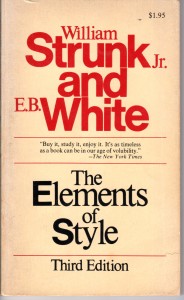 Avoiding the Redundancy Trap
Avoiding the Redundancy Trap
Okay, so the title is overkill. But hopefully it grabbed your attention. How easy it is for a careless writer to slip into the redundancy trap.
“Writing is clear thinking on paper.”
The above saying was drummed into my head early on in my writing life. Near the top of the list (if not the top), of how to write clearly is to steer clear of redundancies.
Definition of Redundant
In order to avoid that trap, it’s good to first understand what the term redundant means. Below are several variations of the definition*:
a : exceeding what is necessary or normal : superfluous
b : characterized by or containing an excess; specifically : using more words than necessary
c : characterized by similarity or repetition <a group of particularly redundant brick buildings>
d chiefly British : no longer needed for a job and hence laid off
* http://www.merriam-webster.com/dictionary/redundant?show=0&t=1378997895
Since we’re talking about words and not buildings (or employees) we’ll stick with “b” – when writers/novelists use more words than necessary.
A Sneaky Culprit
Believe me it happens to all of us, no matter how many years we’ve been at this writing business. Redundancy is a sneaky culprit, lurking in the corners of your brain ready to fill out those seemingly weak sentences.
Clear writing is achieved by concise writing, as stated below:
“Vigorous writing is concise. A sentence should contain no unnecessary words, a paragraph no unnecessary sentences, for the same reason that a  drawing should have no unnecessary lines and a machine no unnecessary parts. This requires not that the writer make all his sentences short, or that he avoid all detail and treat his subjects only in outline, but that every word tell.”
drawing should have no unnecessary lines and a machine no unnecessary parts. This requires not that the writer make all his sentences short, or that he avoid all detail and treat his subjects only in outline, but that every word tell.”
— William Strunk, Jr., Elements of Style
“…but that every word tell.” I like that statement. We writers are wordsmiths. Our craft is writing and words are our tools. The best writers are those who have learned (and continue to learn) how to wield those tools like an expert.
Lazy Writing
Here’s an example of lazy writing:
Erik was truly paranoid. He honestly felt that every person was out to get him.
This heavy writing is made heavier by adding truly and honestly – they are truly redundant words. Right? The two sentences hold the same meaning which again adds to the heaviness of the writing. Concise it is not.
Let’s look at a few common redundancies:
- End result
- Exactly the same
- Past history
- Basic essentials
- New innovation
- Protest against
- Spell out in detail
You get the idea. Unnecessary words serve to bog down the text and muddle the meaning.
A Place for Repetition
Is there a place for repetition? Of course. When you are stressing a point. Or perhaps in ad copy when a declaration is repeated for emphasis. The skilled writer knows how to make repetition work for the intended purpose. The unskilled writer inadvertently lumps redundant words and phrases simply because of inattention, lack of expertise, or laziness.
Most readers could not tell you why a piece of writing is not effective – they just know. It’s the writer’s job to create clean, clear prose as a work of art. As Mr. Strunk alluded, clean writing is like a drawing with no unnecessary lines. The viewer of the art, and the reader of the prose, may admire each one, but the artist and the author remain invisible. Their techniques are subtle but powerful.
As you practice your craft of writing, whether it’s a blog, or an ebook, or a freelance assignment, or your beloved novel, strive for clarity.
Learn to make “every word tell.”

~*~*~*~*~*~*~*~*~*~*~*~*~
If you enjoy the insights, musings, information, and tips and techniques offered on the Be A Novelist blog site, why not subscribe? That way each post will be in your email inbox automatically. Simply click on the large orange logo at the top right of the page. Would love to have you come aboard.
If you ever have any questions, please leave a comment on the page or email me at: NormaJean@beanovelist.com

Norma Jean,
I enjoyed this post. Redundant phrases are everywhere. Lately, the “reason why” and “continuing on” are popular.
Mary
A topic close to my heart. Exact same is one of my peeves, and I cringe everytime I hear it or read it. Strunk and White is one of my favorite references, but I also like Diane Hacker’s ‘Rules for Writers.’ It covers everything and provides exercises to flex your writing muscles. I think it is a must have for writers and editors.